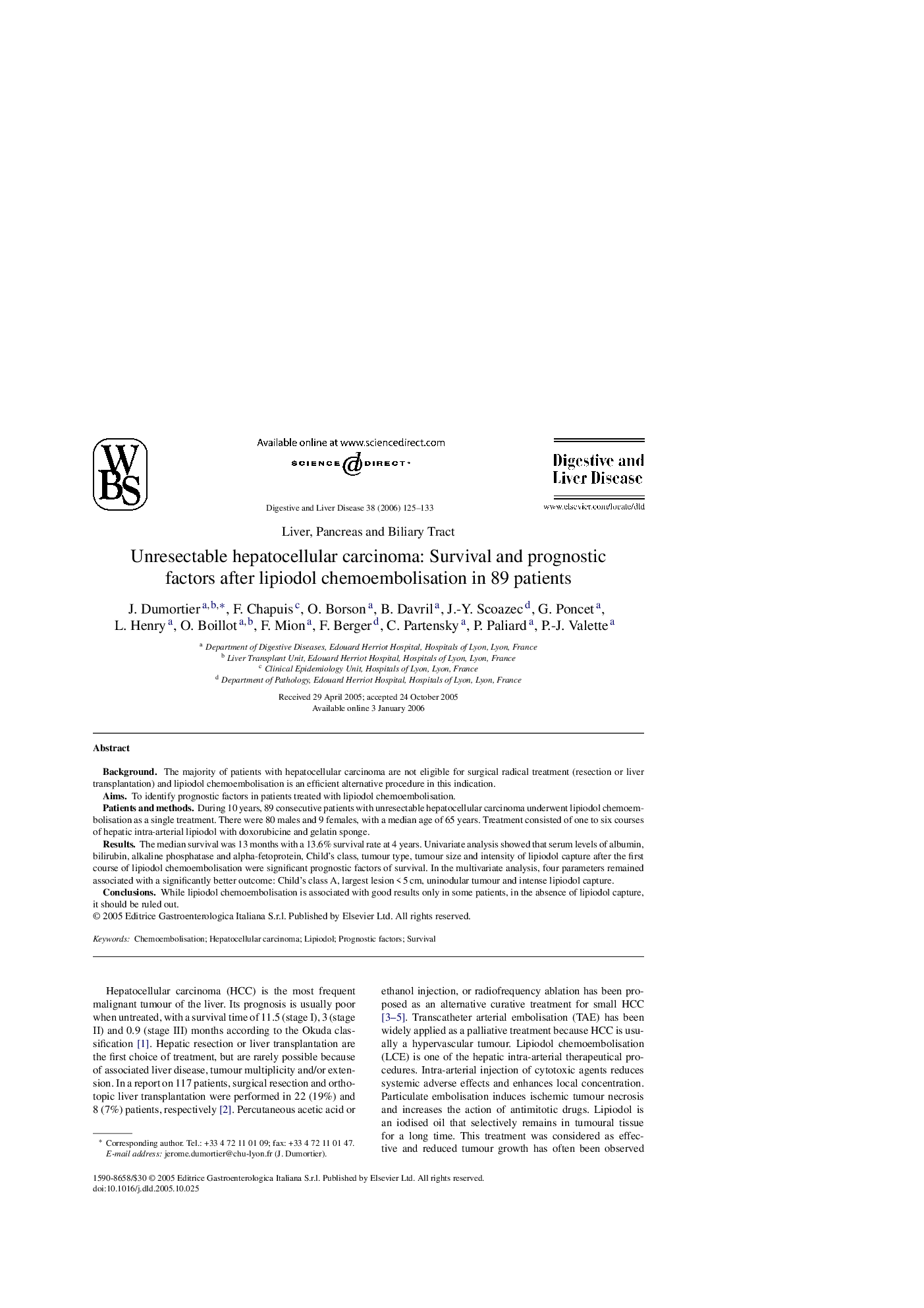| Article ID | Journal | Published Year | Pages | File Type |
|---|---|---|---|---|
| 3266700 | Digestive and Liver Disease | 2006 | 9 Pages |
BackgroundThe majority of patients with hepatocellular carcinoma are not eligible for surgical radical treatment (resection or liver transplantation) and lipiodol chemoembolisation is an efficient alternative procedure in this indication.AimsTo identify prognostic factors in patients treated with lipiodol chemoembolisation.Patients and methodsDuring 10 years, 89 consecutive patients with unresectable hepatocellular carcinoma underwent lipiodol chemoembolisation as a single treatment. There were 80 males and 9 females, with a median age of 65 years. Treatment consisted of one to six courses of hepatic intra-arterial lipiodol with doxorubicine and gelatin sponge.ResultsThe median survival was 13 months with a 13.6% survival rate at 4 years. Univariate analysis showed that serum levels of albumin, bilirubin, alkaline phosphatase and alpha-fetoprotein, Child's class, tumour type, tumour size and intensity of lipiodol capture after the first course of lipiodol chemoembolisation were significant prognostic factors of survival. In the multivariate analysis, four parameters remained associated with a significantly better outcome: Child's class A, largest lesion < 5 cm, uninodular tumour and intense lipiodol capture.ConclusionsWhile lipiodol chemoembolisation is associated with good results only in some patients, in the absence of lipiodol capture, it should be ruled out.
